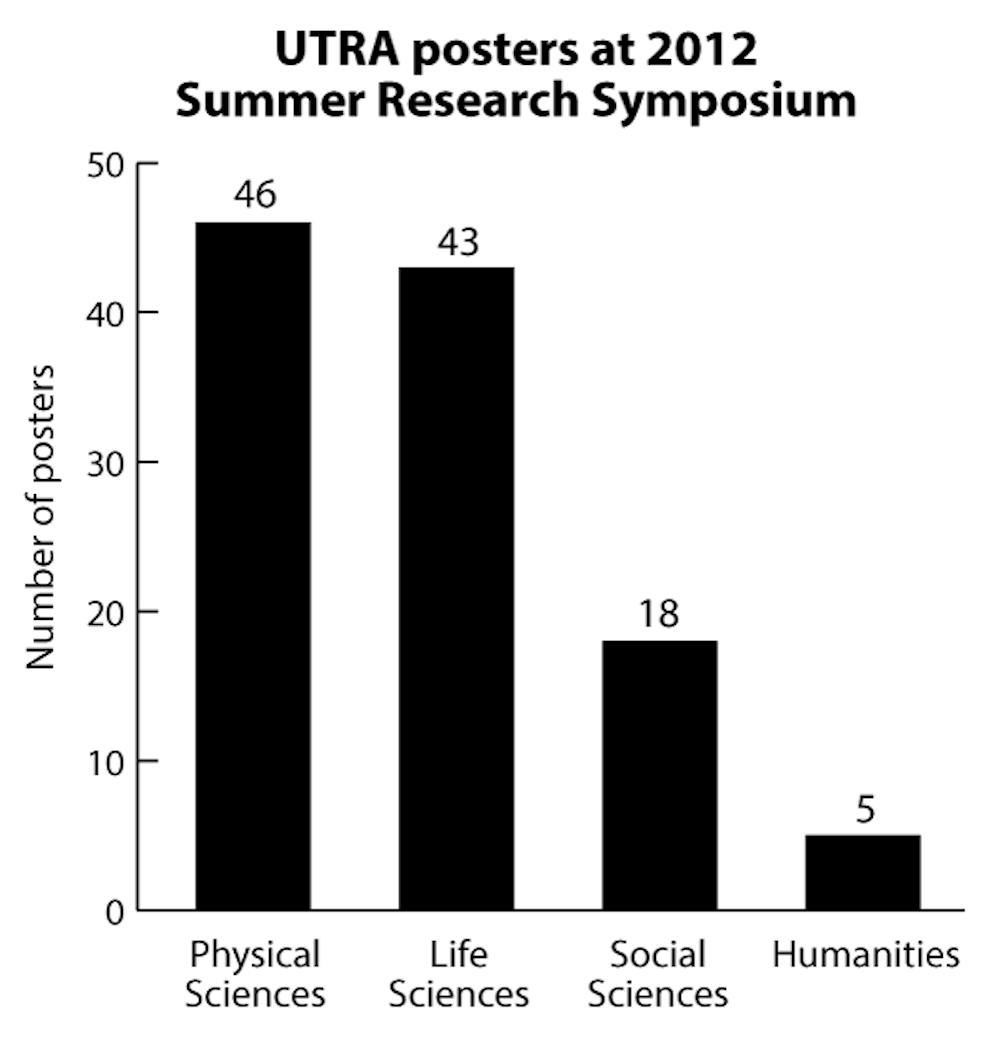Applications for Undergraduate Teaching and Research Awards increased significantly this year to nearly 400 applicants, said Besenia Rodriguez ’00, associate dean of the college for research and upperclass studies and director of the UTRA program.
Following recent outreach efforts from the Dean of the College, the number of applicants from the humanities and social sciences continued to rise this year, though data regarding the breakdown of awards by discipline were unavailable.
The competitive aspect of the program this year has been compounded because unusually few students are turning down the awards, leaving most waitlisted students unlikely to receive funding, said David Targan ’78, associate dean of the College for science education and former co-director of the program.
The UTRA program typically supports around 220 students each summer, Targan said, giving $3,000 stipends to individuals and $2,500 to members of team UTRA projects. He said the program is special because it allocates “upwards of $600,000 a year” in a way that “is not tied to any agenda” of the federal government, an arrangement not shared by many universities.
The UTRA program is “by far” the largest source of University-supported fellowships, he added.
Targan and Rodriguez were unable to offer a direct reason for the spike in applications, but Targan suggested the across-the-board cuts to government agencies under the federal sequester may have contributed.
“It’s certainly possible that has played a role here,” he said, citing anecdotal conversations with faculty members but emphasizing the lack of hard data. He noted that the response to federal grant reductions is typically to “cut around the edges” or cut non-critical programs, something he said often includes those for undergraduates.
In recent years, the program has also worked to reduce the underrepresentation of awards in the humanities and social sciences. Though direct data were not available, only five out of 112 UTRA posters presented at the 2012 Summer Research Symposium were from humanities departments. But this number likely under-represents humanities and social science disciplines that place less emphasis on posters, Rodriguez said.
The program invites some students in those disciplines to give talks about their work “since the poster session may not be the best vehicle,” she added.
Targan said he believes the underrepresentation is due to a lack of applications, and Rodriguez has led outreach efforts to encourage students from underrepresented disciplines to apply.
Rodriguez said the campaign has included faculty advising lunches and outreach to junior faculty members through the Sheridan Center for Teaching and Learning “to help them think about how to incorporate undergraduate research into their own scholarship.” The program also offers some endowed UTRAs that “are earmarked for certain fields,” some of which are in the humanities, she said.
Rachel Kaplan ’15, a former Herald photographer who is researching obsessive compulsive disorder this summer on a neuroscience UTRA, said she applied to the program so that she could continue the research she began this semester.
She said she originally heard about UTRAs through older pre-med students. “A lot of pre-meds do research,” she said.
Rodriguez said one goal in the outreach efforts is to promote a similar “culture of research” among undergraduates in the humanities and social sciences that is “not just at the level of a senior thesis.”
A second goal is to increase the number of applications from those fields, which she said is steadily occurring. Consistent with that trend, Kaplan described her friends as pursuing an even balance of disciplines, with half receiving UTRAs for the life and physical sciences and the other half doing “social science and anthropology and even art history,” she said.
A previous version of this article incorrectly quoted Rachel Kaplan ’15 saying she applied for an UTRA because older pre-medical students advised her to. In fact, she said she heard about the program through older students but applied so she could continue the research she began this semester. The Herald regrets the error.

ADVERTISEMENT
More




